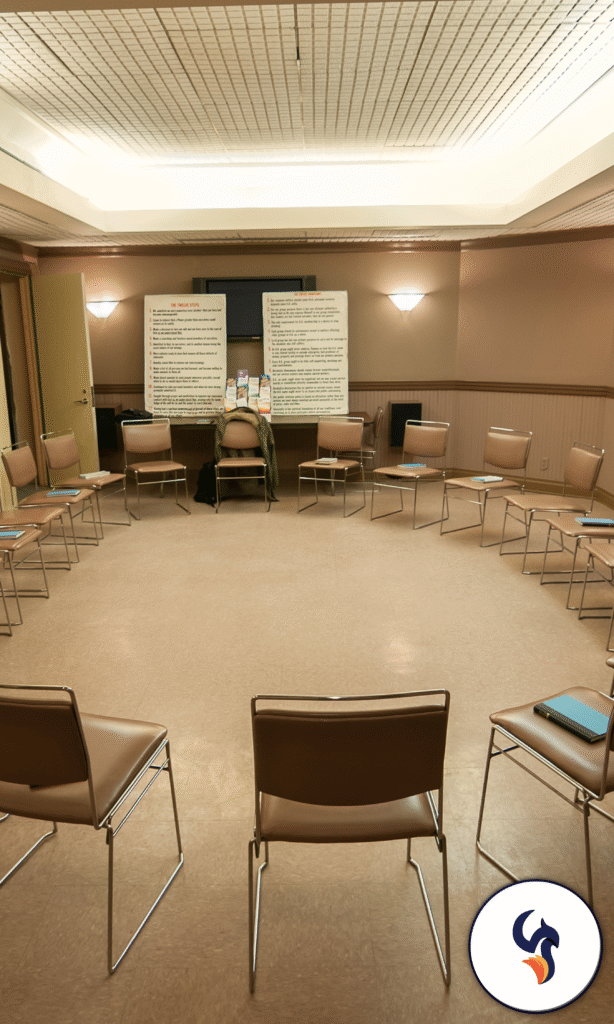Written by: Meryl Lammers, LSW, MT-BC
Early sobriety and trauma therapy go hand in hand. Whether you are the person in recovery or the loved one of someone who is, early sobriety can feel like a roller coaster: You may experience emotional ups and downs that you never have before. There’s the fear of a relapse, anger and resentment, sadness and grief, and wreckage of what a life in active addiction can cause. Many people in recovery and their loved ones have experienced traumatic events, whether from early childhood, or during active addiction, and these experiences can be triggered during early sobriety. Addiction and trauma affect the whole family system and therefore it’s important for everyone to seek support.
What to Expect in Early Sobriety
For the Person in Recovery

For the person in recovery, early sobriety can manifest in different ways. You may need to go to an inpatient facility or partial hospitalization program (PHP) for 30-60 days to help with medical management of withdrawal or detoxification and need to be physically separated from your drug of choice in a safe environment. You may need to take leave from a job and your living environment. This time away from your life can be a crucial part of the healing process, as you will be offered medical and psychological support to get through the hardest part: Detaching from your drug of choice.
But the journey doesn’t end with inpatient treatment. Most often, you will then be referred to an Intensive Outpatient Program (IOP) for 2-3 days a week to continue with support with relapse prevention through group and individual therapy. Trauma therapy in conjunction with other modalities usually starts in these programs as a form of relapse prevention.
Mutual aid programs such as Alcoholics Anonymous, Narcotics Anonymous, and SMART Recovery are highly recommended during this time for continued community support. Once IOP is completed, often the recommendation is to attend an outpatient therapy facility for individual, couples, and/or family therapy.
Maybe you didn’t go to treatment due to lack of resources/finances/insurance. Maybe you’re not sure what to do. Mutual Aid Programs like AA, NA, SMART Recovery, and Dharma recovery are free community resources filled with people in recovery eager to help the newcomer to sobriety that can be easily accessed through an internet search or phone app. You may also find support through religious and spiritual organizations. If you need medical detoxification for withdrawal, it is best to seek help at your nearest emergency room.
For the Loved Ones

For the loved ones, you can expect to be living alone or feel an emptiness while your loved one is in treatment, all while carrying the burden of the household. You may have already been experiencing this loneliness during active addiction. Maybe your partner/loved one was physically present, but unable to connect with you, share with domestic labor, or help financially due to their substance use. Or maybe they were physically absent all together.
Resentment, fear, and frustration can build during this time due to the unfair burden. The stress and emotional toll are immense during this time. Many of the programs listed above offer couple and family sessions, which would be beneficial to join. Trauma therapy is also an option for you, as living with someone in active addiction can be traumatizing, or maybe you’ve experienced past traumas that are being triggered by your loved one’s behavior.
Al-Anon, Al-Ateen, Codependents Anonymous (CODA), and Adult Children of Alcoholics and Dysfunctional Families (ACA) are free supportive community organizations that can also provide needed support during this time. You can do a quick internet search for these programs in your area.
Types of Therapy
Many inpatient, PHP, and IOP programs offer Cognitive Behavioral Therapy (CBT) and Dialectic Behavioral Therapy (DBT), which are a top-down approach where the focus is on how the individual’s thoughts are affecting behavior. These techniques are helpful for relapse prevention and increasing awareness of patterns of destructive thoughts and behaviors and actionable steps to take towards change. This is usually implemented once the individual is clear from withdrawal symptoms and can be useful for relapse prevention and coping skills.
What About Trauma
If you are someone who experienced trauma, being clear minded in early recovery can be a double-edged sword. You are physically clear from your drug of choice, but you may start to have memories or flashbacks from traumatic experiences that you used the drugs to forget.

You may experience the following:
- Nightmares related to traumatic memories or dreams about using drugs/drinking
- Heightened anxiety/nervousness
- Depression/hopelessness
- Thoughts of using drugs/drinking to cope with memories
- Feeling disconnected from your body
This is a common experience, and you are not alone. There is help available.
Stabilization
Trauma specific therapy is often introduced in early sobriety, sometimes in higher levels of care, but more often addressed once you are in outpatient therapy. This is because of the need for physical stabilization and emotional safety offered in higher levels of care. Experiential Trauma Therapies typically use a bottom-up approach, which prioritizes addressing trauma starting with the body’s responses and sensations, rather than focusing on the thoughts and memories associated with the traumatic experience.
Re-telling of traumatic experiences in early sobriety can cause emotional dysregulation and intense physical discomfort, which could lead to urges to drink or get high. However, at the same time, engaging in trauma therapy in early sobriety can help prevent relapse fueled by unresolved trauma or loss.
Trauma therapy in early sobriety often involves somatic approaches:

- Breathing exercises
- Yoga postures and movement
- Mindfulness
- Progressive muscle relaxation, movement
- Expressive arts therapies (art and music)
- Psychodrama techniques
- EMDR Resourcing and grounding techniques
The Bottom-Up Approach
The bottom-up approach enhances relapse prevention and creates safety and stability. This sets the stage for deeper trauma work down the road, such as reprocessing and desensitizing traumatic memories using Eye Movement Desensitization and Reprocessing (EMDR).
These bottom-up approaches are also useful for loved ones of those in early recovery to help manage anxiety, fear, frustration, anger, and even traumatic experiences caused by your loved one while in active addiction. If you are experiencing the following, you may benefit from therapy as well:
- Resentment/Anger
- The intense need to control and micromanage
- Increased stress/anxiety
- Flashbacks/Nightmares
- Sleeplessness
- A sense of dread
- Increase in your own substance use to cope with emotions/stress
Addiction affects the whole family. But help is out there. Recovery is available to all those who seek! If you are in early sobriety or the loved one of someone who is and you’re in need of help, call the Phoenix Center today to book with one of our trained experiential trauma therapists. You are not alone.










